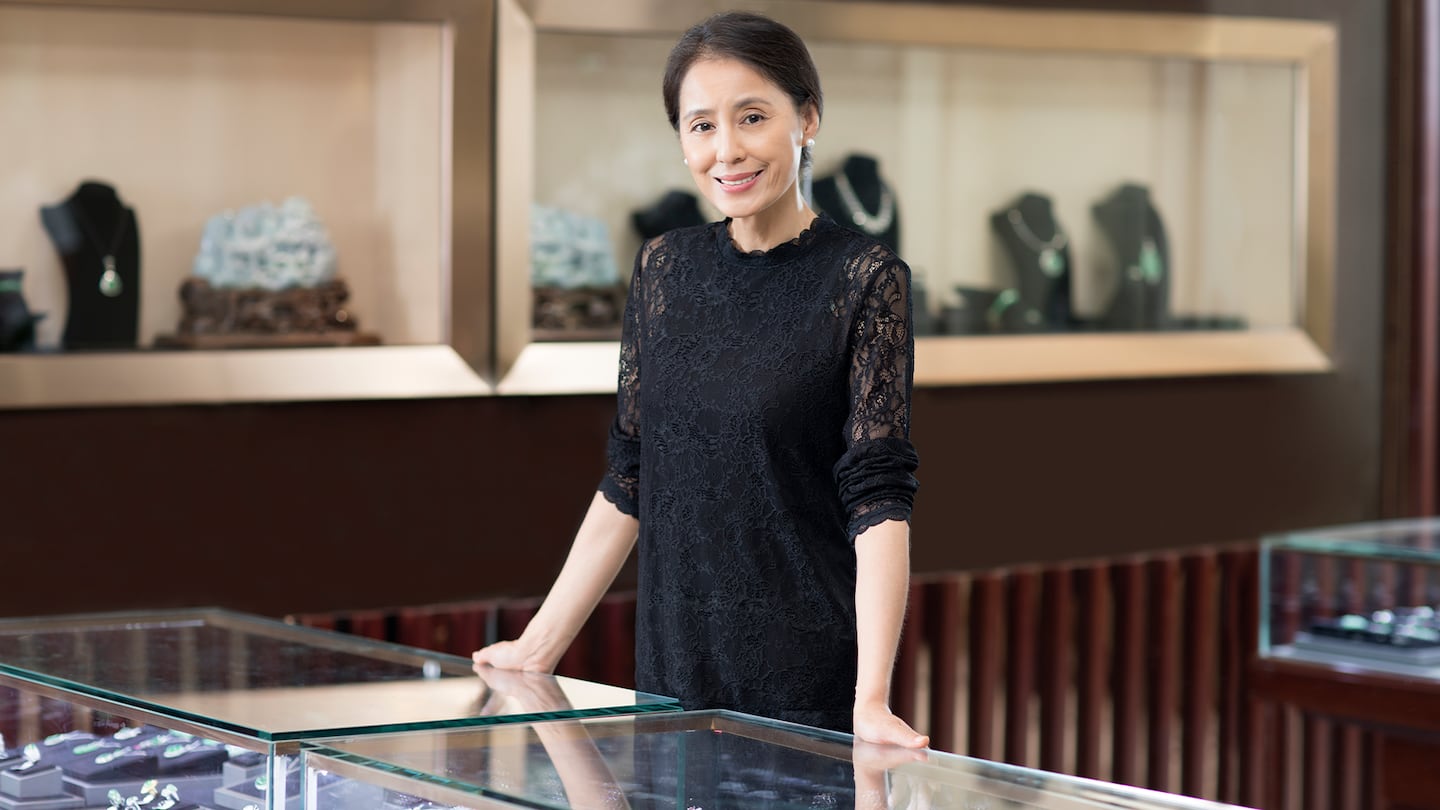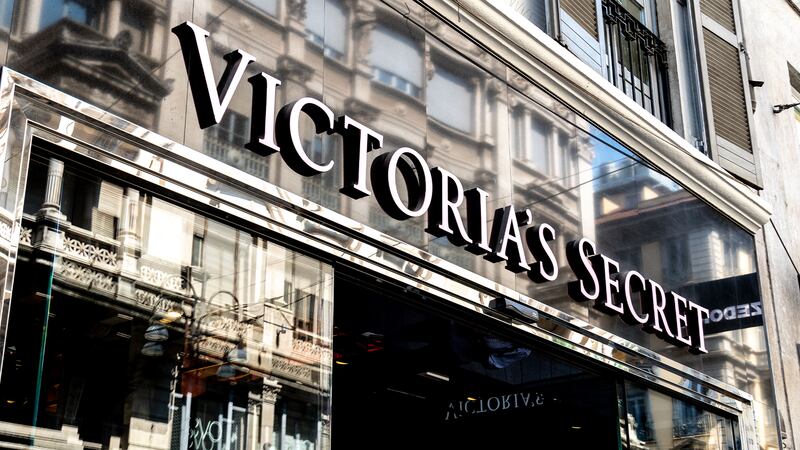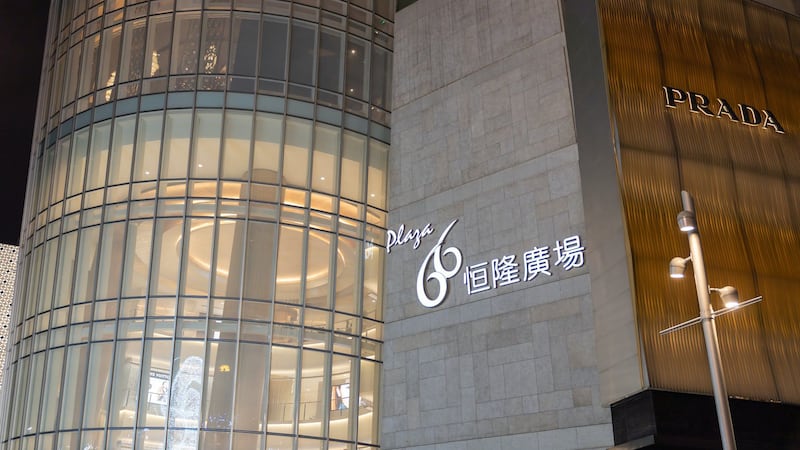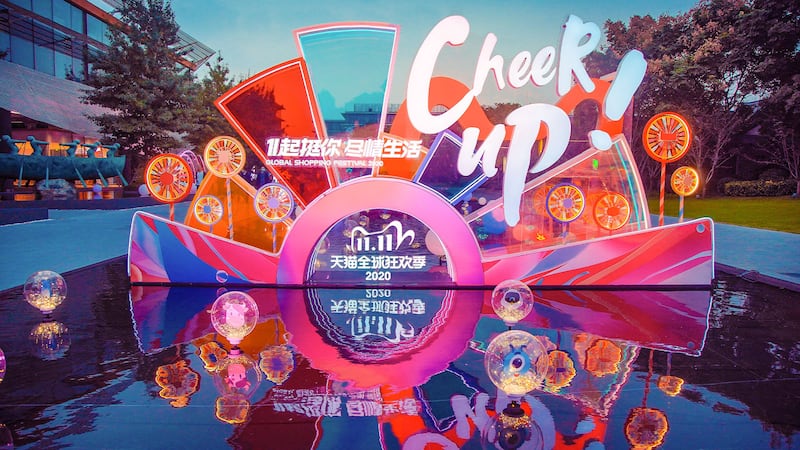
The Business of Fashion
Agenda-setting intelligence, analysis and advice for the global fashion community.

Agenda-setting intelligence, analysis and advice for the global fashion community.

As seasoned luxury shoppers accustomed to buying much of their wardrobes overseas for years, Stepheni Mao and her daughter Rachel thought they knew where to get the best service.
“We felt the best service was in Japan and Hong Kong, then maybe Paris and London. We never thought it was [back in mainland] China,” Stepheni Mao said.
But over the past two years, the retail equation has changed dramatically for Chinese clients like Mao and, along with it, so too have their views on customer service in China.
When the first lockdowns were introduced in China in early 2020, sales assistants at luxury boutiques around the country went the extra mile to find ways to stay in close contact with their clients, mostly via WeChat, offering special services and promotions.
ADVERTISEMENT
Even as stores re-opened relatively quickly in some cities, the extra initiative taken by retail staff continued and their rapport with clients deepened, to the extent that, in some cases, luxury consumers in China now consider their sales associates to be someone with whom they have a meaningful relationship.
Building trust and loyalty to keep locals buying locally
“When we are in overseas stores, we are more like walk-in shoppers for them, but since we have been in Shanghai for a while, this is a long-term thing,” explained Rachel, adding that both she and her mother have sales assistants (or SAs as they are known locally) at each luxury brand they frequent who are now so close that they are sent hongbao (red envelopes for good luck) at Chinese New Year and gifts on other occasions.
“If I am shopping in Japan, the service is nice, but [here] they remember my brother likes Star Wars, my Dad likes to play golf. The Japanese store staff don’t know that,” she added.
According to research on Chinese luxury shoppers conducted by Hong Kong-based consultancy Oliver Wyman in October 2021, in which 3,000 mainland luxury fashion consumers were surveyed, 70 percent used sales assistants to facilitate purchases and 40 percent said they communicate with their SAs at least once per week.
It’s a very unique phenomenon in China, compared to the rest of the world. Sales assistants overseas are much less powerful [than those in China].
Katie Sham, a retail and consumer goods principal at Oliver Wyman, says these communications aren’t limited to products and promotions but cover a wide range of day-to-day topics, and messages from SAs are welcomed by consumers, who see their SA taking the time to check in with them is a sign of how valued they are, by their SA and, by extension, by the brand they are working for.
“It’s a very unique phenomenon in China, compared to the rest of the world. SAs overseas are much less powerful [than those in China], and in many cases the SA messages [that a Chinese SA typically sends to their clients] are unwanted [by customers abroad as they are seen as] bugging them about images of new launches [so] the customer might not [even] reply,” said Sham, adding that in some ways it isn’t a surprise considering the nature of personal relationship culture in business known as guanxi in the country.
It remains to be seen whether this particular sales culture will help China retain a significant proportion of its recently repatriated luxury spending when borders eventually re-open, but some are betting that, with global price harmonisation efforts continuing and some habits consumers developed over the pandemic period likely to stick, it will make a difference.
ADVERTISEMENT
“China is a little bit special because the top customers don’t really care about the price difference, they care about getting the best service and the best product,” Stepheni Mao said. “Sometimes when I would go to Paris [before the pandemic], I couldn’t ask the Paris sales people to keep a bag for me, but now here [in China], we can ask.”
Pre-pandemic, when the majority of luxury purchases made by Chinese shoppers took place abroad, sales transacted in China only accounted for 11 percent of the global luxury market in 2019, according to Bain. As travel shut down due to Covid-19 restrictions, domestic spend on luxury goods in mainland China exploded as spend previously allocated to shopping abroad was repatriated to the mainland.
The firm estimates that sales made in China in 2021 accounted for 21 percent of the global market and expects that figure to rise to 25 to 27 percent in 2025. But whether they buy at home or abroad, the importance of Chinese consumers is only going to rise. Bain expects sales from Chinese nationals shopping around the world to account for 40 to 45 percent of the global luxury market in 2025, up from 21 to 23 percent in 2021.
Rewarding top sellers to hit ambitious store targets
Luxury brands have recognised the growing importance of these frontline retail staff, and wages — and in some cases bonuses — for frontline retail staff in China have risen significantly in recent years.
Late last year, a job advertisement for a luxury store manager in Hangzhou made news around the country because the position offered a monthly income of 80,000 yuan ($12,575) an enormous sum for most middle-class Chinese people and about ten times higher than the country’s average monthly salary.
The business has grown [in China] a lot and the [sales assistant] salaries have also grown to keep the right people [driving that] growth.
Fabrice Tavel-Besson, executive vice president at CXG Academy, a global luxury retail training, coaching and consulting firm that works with brands including Versace, Saint Laurent and Bentley, says that, with commission, sales assistants in China today can earn up to 50,000 yuan per month.
“Sometime a sales assistant might seem to be making a high salary, but they are also [responsible] for 5 million [yuan] per month in sales,” he said, referring to the high return on investment brands can reap even when paying relatively high SA salaries. “The business has grown [in China] a lot and the [sales assistant] salaries have also grown to keep the right people [driving that] growth.”
ADVERTISEMENT
In other words, it’s difficult to overstate how important SAs have become as part of the Chinese luxury consumer journey over the past few years.
Boosting relationships by currying favour
On online platforms young consumers turn to for advice, such as Xiaohongshu, tips abound for finding a good sales assistant. For young consumers looking to buy into a luxury brand for the first time, the first question some ask their network in the commonly used local parlance is: “How do I find an ‘angel SA’ and avoid getting a ‘devil SA’?” The latter might be retail staff who pile on too much pressure to buy or don’t gauge the dynamics of the relationship right.
[Sales assistants] in China are getting a lot of pressure from their head office [overseas]; they push, push, push [them to achieve higher sales targets] and this is not the right feeling to give the customer.
Sham says the advice given to customers to maximise their chances of landing highly-prized “angel SAs” at top luxury brands include ensuring to dress to impress when visiting the store and demonstrating knowledge of the brand to show a level of seriousness.
“It’s the first step, the first touchpoint that they have, it’s the first consideration they have when they start their journey with the brand… the SA is the most crucial and direct touchpoint they have with the brand,” Sham said.
Other common tips are to avoid the most senior SA in the store, as a mid-level SA is more likely to have space in their client portfolio, and, though it might seem strange, some online advice even implies that female customers should look for a male SA who might treat them with more deference than another woman would.
It seems only logical that sales assistants endeavour to stay in close contact with their network of consumers, particularly when doing so means that they can make more sales and therefore earn higher commissions, but what is in it for the customer and why do many care so much about cultivating a strong relationship with luxury brand SAs?
It’s a matter of self-interest, in many ways. In a world in which the most coveted luxury items tend to be sold in deliberately limited quantities, VIP customers (often known as VICs in China) want their SAs to give them first dibs on products and promotions. Since VICs are competing for favoured status over the dozens (and perhaps hundreds) of other customers in each SA’s network, many try to entice their SAs throughout the year with gestures and sweeteners.
Several luxury brand customers BoF spoke to recounted times they invited their sales assistants to afternoon tea and sent them mooncakes at Mid-Autumn Festival, or high-quality skincare gifts for Christmas, to engender their loyalty.
A double-edged sword for brands
It’s easy to see how the development of China’s unique luxury service culture can be a win-win for both the sales assistants and customers. But asking how beneficial it is for the luxury brand is a more complicated question to answer.
On one level, these relationships are of course very beneficial. They have helped boost sales in recent years, and for local management, they may also help luxury brands retain a larger percentage of Chinese consumer spending on the mainland once Chinese borders re-open.
But in other ways, this intimate customer service dynamic can present significant challenges because it places the relationship with the customer in the hands of the sales assistant, giving the brands less direct control.
Brands have tried to introduce strategies to help combat this. It’s common, for example, for sales assistants to be provided a company phone during working hours, on which all of their communication with clients is meant to take place, but in practice, Sham says, “100 percent of them don’t do that all the time.”
While sales assistants might use the company phone for new and less valuable customers, they will, often out of necessity but sometimes in a bid to take more ownership over the client relationship, use their personal phone to communication with their top VIPs.
I think only the really strong sales assistants might be able to go to another brand and say, ‘I can bring so many customers with me’,
“If you use the work phone, you don’t take it home and carry it with you outside of work hours but your VIP customers expect you to reply to them at 10 pm,” says Sham. “If you are limited to communicating between 9 am to 6 pm it will actually piss off the customer.”
Many sales assistants also see their connections with VIP clients as their most valuable leverage with the company. Though, in theory, there could be a concern that SAs are able to take their network to a competitor brand store, a multi-brand retailer or department store, in practice that’s less of a risk, says luxury retail training expert Jonny Chiang.
“I think only the really strong SAs might be able to go to another brand and say, ‘I can bring so many customers with me’, but most SAs won’t be able to do that,” he said.
Stepheni Mao agrees that it would be unusual for her to follow an SA to another brand, or even to a store at another mall in part because she is satisfied with the benefits she receives as a VIP at her regular mall Shanghai’s Plaza 66.
“If they are moving from Chanel to Dior and I already have a good person in Dior, I’m not going to change,” she said.
Who really owns the client relationship?
Another headache for brands — one that is arguably more pressing and potentially contravenes some luxury companies’ ethics policies — is the gifting that goes on between customers and their SAs in order to curry favour.
“A lot of brands aren’t tightly controlling it and no SA will be telling the brand they got this nice skincare set from their customer, so that means the SA might not only be prioritising customers in terms of the benefit to the brand, but also the benefit to themselves,” Sham said.
The solution for many of these issues, she adds, starts with an added awareness of the problem and follows with brands having the managers put a higher priority on the wellbeing of their SAs. They should then consider providing more support for SAs and shift KPIs to take into account the out-of-hours work sales assistants do, the conflict of interests that is sometimes inherent in their role and the high expectations placed on them by consumers.
For example, Sham said, rather than focusing purely on sales metrics, it could benefit brands to include KPIs for bringing in new customers each month or quarter, so that the most talented SAs aren’t just focussed on their own small group of VICs, but are also cultivating a new generation of luxury consumers that could potentially become VICs in the future. A more severe crackdown on gifting is also probably in order, she adds.
One danger visible to some on the horizon is the pressure that commercial teams in global brand headquarters and regional managers put on China staff to continue to post major gains in the China market, following on from a much larger base than existed two years ago. That pressure often trickles down to impact the SA relationships with VICs, sometimes for the worse.
“It’s apparent that the brands in China are getting a lot of pressure from their head office, they push, push, push and actually, this is not the right feeling to give the customer,” Stepheni Mao said.
CHINA NEWS FROM THE PAST WEEK
时尚与美容
FASHION & BEAUTY

Victoria’s Secret To Sell Stake in China Business for $45 Million
Victoria’s Secret is set to sell a 49 percent stake in its China business to Hong Kong-based lingerie maker Regina Miracle International Ltd for $45 million in cash, a move it hopes will boost sales in the region. The agreement will see the two companies form a joint venture, with Regina Miracle operating all Victoria’s Secret stores and related online business in China. (BoF)
Chinese Fast Fashion Giant Peacebird Sees Profit Plunge in 2021
The Ningbo-based group released its 2021 financial report, which showed net profit attributable to shareholders dropped by 660 million yuan ($104.31 million) or 7 percent year-on-year, while net profit excluding extraordinary profit was down 500 million yuan ($79.03 million), or 11 percent compared with 2020. (BoF)
Chinese New Year Sees Luxury Brands Tap Into TV Marketing
This year, international brands such as Balmain, Chanel, Saint Laurent and Lanvin enjoyed prominent placement in the Spring Festival Gala, the annual TV programme celebrating the countdown to Chinese New Year on the CCTV network. The brands dressed top celebrities including Li Yuchun (also known as Chris Lee), Song Qian (as known as Victoria Song), Yi Yangqianxi (also known as Jackson Yee) and Zhang Xiaofei. According to the programme’s official data, 4.93 billion views were counted through digital channels. (BoF)
科技与创新
TECH & INNOVATION

ByteDance Launches Metaverse Social Network
ByteDance, the parent company of TikTok and Douyin, is beta testing a metaverse social media app after investing in multiple metaverse-related companies. The app is called Party Island and allows users to create avatars, join virtual events and chat with other participants. Party Island is currently under beta testing and is available in app stores, but only to a small number of users with invitation codes. (KrAsia)
Virtual Idols in China Are Changing the Way Brands Reach Gen-Z
Social media platforms, including Douyin and Bilibili, have given digital characters a way to express themselves in more intimate, immediate ways and garner massive fan bases. The popularity of virtual idols is closely linked to the rise of Bilibili, where around 32,400 virtual idols hosted livestreams in 2020. Gen-Z consumers make up a majority of the fan base with more than 70 percent of these followers aged between 18 and 23, according to data compiled by consultancy iiMedia research. Brands, including Louis Vuitton and Givenchy, are already tapping into this market to create collaborations with the virtual stars. (KrAsia)
Tencent Admits Better Work-Life Balance Is Needed
An employee of Tencent, the parent company of WeChat, recently criticised his team’s praise of a colleague working “20 consecutive hours at high intensity.” Zhang Yifei questioned his managers on the necessity of the long hours in an internal group chat of 600 employees, and criticised management for promoting such a culture within the company. He also said that he would resign the next day. On Wednesday, the head of WeCom, the corporate communication and office tool created by Tencent’s WeChat team, said in the company’s internal forum that long working hours are “not sustainable.” The incident sparked a broader discussion of the 996 overwork culture prevalent in China’s tech industry. (South China Morning Post)
Esports Industry ‘Chaos’ Must End, Says State Media
Ahead of the 2022 Asian Games later this year, state media People’s Daily said the question of whether “chaos in the esports industry can be effectively rectified has become a hot topic”, adding that “players sometimes play fake games and manipulate games, while fans fight with each other.” The state has taken a tough stance on the country’s video games industry amid its broader crackdown on the technology sector. In response to the tighter game limits, some clubs dismissed players under 18 and asked them to stop training, the Southern Metropolis Daily reported last September. (South China Morning Post)
消费与零售
CONSUMER & RETAIL

Mall-Owner Hang Lung Properties Sees Rental Income Rise 31% in Mainland
The Hong Kong-based property group reported revenue of HK $10.32 billion ($1.34 billion) and operating profit of HK $7.37 billion ($958 million) last year, up 15 percent and 14 percent respectively. Its mainland China property rental income in 2021 outpaced that of Hong Kong, reaching HK $6.94 billion($902 million), up 31 percent year-on-year. (BoF)
China’s Online Retail Sales Grow 12% in 2021
China’s online retail sales reached 13.1 trillion yuan ($2 trillion) in 2021, according to Chinese Ministry of Commerce (MOFCOM) data. Online retail sales of physical goods accounted for 24.5 percent of total retail sales of consumer goods and contributed 23.6 percent of the growth of retail sales of consumer goods in 2021, a MOFCOM spokesman said. (CGTN)
China’s E-Commerce Players Reconsider ‘Costly’ Livestreaming
In 2020, over 900 billion yuan (USD 141.7 billion) worth of goods were sold through livestreams in China, double the amount in 2019, according to a report by 36Kr Research. However, despite the popularity of livestreaming when influencers are hired to sell products this usually attracts “low [prices] during the live shows,” said Yi Zihan, owner of organic food brand, Songxianxian. In a report on livestream e-commerce released in December 2021, researchers of Soochow Securities wrote, “For merchants, the biggest cost of doing livestreams is actually the discounts that they provide to streamers.” This has caused business owners, including Yi, to limit their use of livestreaming to sell goods. (KrAsia)
政治,经济与社会
POLITICS, ECONOMY, SOCIETY

China’s E-Commerce Hub Faces Omicron Flareup Just Before Holiday
China’s Omicron outbreak spread to its major e-commerce hub days ahead of the Lunar New Year break, the latest of a slew of flareups putting holiday plans for millions of people at risk. Several dozen infections have been detected in Hangzhou, a city near Shanghai and home to Alibaba Group Holding Ltd. and fintech giant Ant Group Co. There are concerns that cases may increase after one of the patients attended a company gathering along with several hundred people. (BoF)
Beijing Tightens Restrictions Ahead of Lunar New Year, Olympics
The capital’s recent outbreak is causing concern because of the Lunar New Year. In mid-January, China’s Ministry of Transport predicted people would take a total of nearly 1.2 billion trips during the holiday season this year, compared with around three billion in pre-pandemic years. The Beijing Winter Games are scheduled to kick off during the week-long holiday period on Feb. 4. All athletes, journalists and other participants in the Olympics are required to be vaccinated or to do three weeks of quarantine and present a negative Covid test before being allowed to enter a “closed loop” sealed off from the rest of the city. (The Wall Street Journal)
China Decoded wants to hear from you. Send tips, suggestions, complaints and compliments to our Shanghai-based Asia Correspondent casey.hall@businessoffashion.com.
With consumers tightening their belts in China, the battle between global fast fashion brands and local high street giants has intensified.
Investors are bracing for a steep slowdown in luxury sales when luxury companies report their first quarter results, reflecting lacklustre Chinese demand.
The French beauty giant’s two latest deals are part of a wider M&A push by global players to capture a larger slice of the China market, targeting buzzy high-end brands that offer products with distinctive Chinese elements.
Post-Covid spend by US tourists in Europe has surged past 2019 levels. Chinese travellers, by contrast, have largely favoured domestic and regional destinations like Hong Kong, Singapore and Japan.